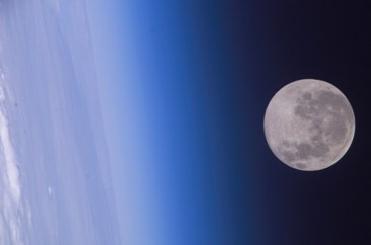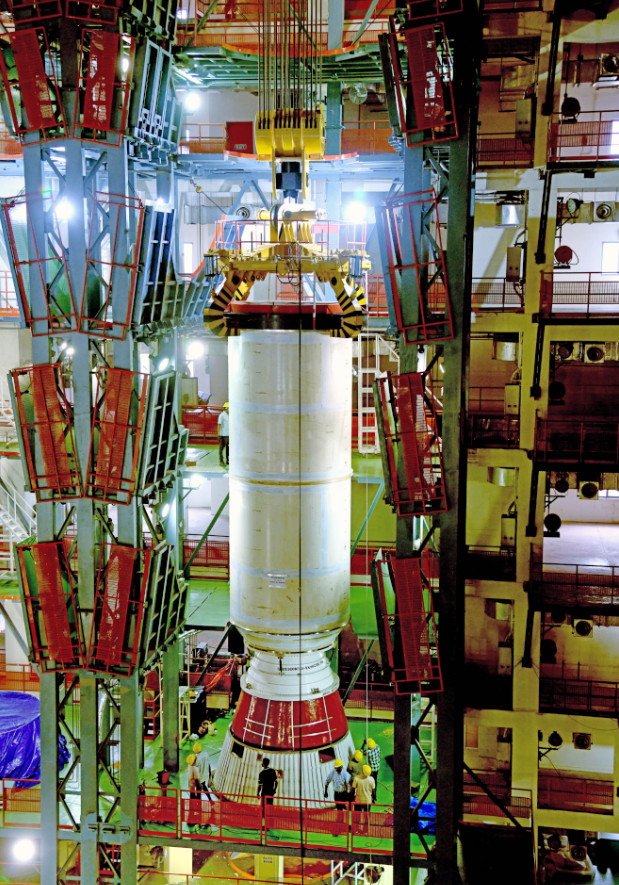
WASHINGTON (BNS): The volume of water molecules locked inside the minerals of Moon’s interior could be much higher than previous estimations, a team of researchers has claimed.
The researchers studied hydroxyl – a component of the rocks found in the lunar interior that bears an oxygen atom bound with hydrogen, and apatite – a water-bearing mineral in the assemblage of minerals. The elements were collected from two Apollo missions and from a lunar meteorite.
The NASA-funded team, led by Francis McCubbin, utilised tests which detect elements in the parts per billion range. Combining their measurements with models that characterise how the material crystallized as the moon cooled during its formation, they found that the minimum water content ranged from 64 parts per billion to 5 parts per million.
The result is at least two orders of magnitude greater than previous results from lunar samples that estimated water content of the Moon to be less than 1 parts per billion, the researchers said.
As per their findings, water is native to the Moon as it was present since the satellite's formation years.
Moon's origin has been commonly believed to be result of a Mars-sized object hitting the Earth 4.5 billion years ago. This impact put a large amount of material into Earth’s orbit that ultimately compacted to form the moon.
The lunar magma ocean, thought to have formed at some point during the compacting process, began to cool. During this cooling, water either escaped or was preserved as hydroxyl molecules in the crystallizing minerals.
Evidence of water on the Moon’s surface and its interior was confirmed by India's Chandrayaan-1 spacecraft and other lunar sample analysis.
The identification of water from multiple types of lunar rocks that display a range of incompatible trace element signatures indicates that water may be at low concentrations but ubiquitous within the Moon’s interior, potentially as early as the time of lunar formation and magma ocean crystallization.
“It is gratifying to see this proof of the hydroxyl contents in lunar apatite. The concentrations are very low and, accordingly, they have been until recently nearly impossible to detect.
“We can now finally begin to consider the implications – and the origin – of water in the interior of the moon,” said lunar scientist Bradley Jolliff of Washington University in St. Louis.
 Previous Article
Previous Article Next Article
Next Article











The Indian Air Force, in its flight trials evaluation report submitted before the Defence Ministry l..
view articleAn insight into the Medium Multi-Role Combat Aircraft competition...
view articleSky enthusiasts can now spot the International Space Station (ISS) commanded by Indian-American astr..
view article